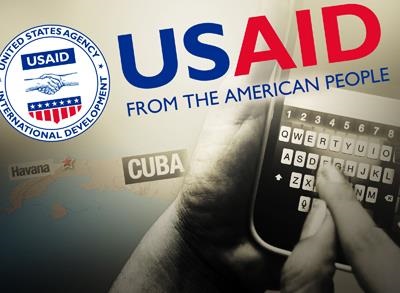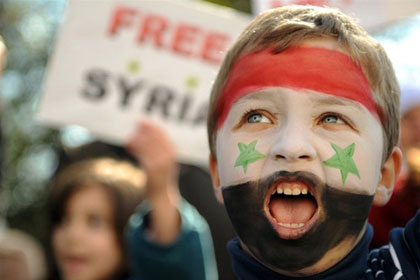Hurricane Harvey
As climate change continues to pervade everyday life with disaster, governments around the world are prioritizing emergency protocols and disaster relief funds. Most recently in the Americas, Hurricane Harvey presented itself as a reminder of changing tides and Hurricane Irma follows close behind. Thus far, Harvey has led to at least 60 deaths, and the number is expected to rise as damaged areas become more accessible. Thousands of people are currently in shelters in Texas and Louisiana and more than 300, 000 homes are damaged, some to the point of total destruction.
Hurricane Harvey has also destroyed several oil refineries, leading to the dissipation of millions of pounds of dangerous chemicals. In addition, 13 out of 52 Superfund sites have been confirmed as flooded to the point of damage. These aggressive pollutants have affected over 200 water systems, with 50 completely shut down.
Although Hurricane Harvey was surprisingly devastating due to its quick rise from Category 1 to Category 4 strength, aid was distributed rather quickly and the tragic aftermath of Hurricane Katrina has been, for the most part, avoided.
EADRCC
NATO’s Euro-Atlantic Disaster Response Coordination Center, also known as EADRCC, works closely with the United Nations Office for the Coordination of Humanitarian Affairs (UN-OCHA) to mitigate disaster response. NATO’s principle emergency response program is active 24/7 and produces situation summaries to send alerts to all of NATO’s members and partners. The centre was founded in 1998 with the hopes of better managing disaster relief and since then it has expanded its mandate to respond to a variety of requests from all over the globe. For instance, in 2014, the Ebola outbreak in West Africa prompted the centre to release an urgent call for help to NATO members to which Canada immediately responded with humanitarian aid workers and millions of dollars to various aid organizations. More recently, on 29 August 2017, Georgia filed a request for assistance to EADRCC during a forest fire emergency and in response, Turkey and other NATO partners provided search and rescue helicopters and firefighting aircraft.
Canada’s Helping Hand
On 1 September 2017, EADRCC released a 4-page executive summary, outlining Hurricane Harvey for all NATO partners. The summary laid out maps and information from the Federal Emergency Management Agency (FEMA) and the National Hurricane Center (NHC) in order to describe Harvey’s impact and its expected path. The section on ‘International Assistance’ encourages financial assistance be sent to the trusted non-governmental relief organizations listed.
Following their first statement, EADRCC released a statement on 6 September 2017, updating the impact analysis and indicating Hurricane Irma preparations were underway. The updated statement also highlighted Canadian assistance. On 31 August 2017, following a generous offer of assistance from Prime Minister Trudeau, the U.S. Department of Homeland Security’s FEMA sent Canada an official request for essentials including pediatric supplies and hygiene kits. In response, Canada sent 27, 000 pounds of essentials that arrived via C-130 to the affected areas.
This is not the first time Canada has extended its help early on in emergency situations. During Hurricane Katrina, Prime Minister Paul Martin released a statement indicating Canada’s readiness to contribute to the disaster relief efforts. In addition, the Canadian government launched Operation UNISON 2005, which deployed 900 soldiers, sailors, and air personnel to the U.S., along with a variety of other essential items.
Only two days following the devastating earthquake in Haiti in 2010, the government of Canada dispatched approximately 2000 Army, Navy, and Air Force personnel to assist in rebuilding efforts. The Canadian Forces displayed extreme resilience and a great help to the international community.
The Canadian Forces have continually displayed exemplary resilience within the international community. From the earthquake in Haiti 2010, where Canada dispatched more than 2000 personnel only two days after, to Hurricane Harvey, where Canada has greatly aided FEMA in coordinating disaster relief, Canada has shown its willingness to help its fellow NATO members and partners in times of need.
Hurricane Irma
As the clean up for Hurricane Harvey continues, Hurricane Irma looms closely behind with fluctuating Category 4 to 5 rating. Irma has devastated Saint Martin as it continues to travel North. Dutch Prime Minister Mark Rutte has said that the island is destroyed and the military is investigating potential victims. Currently, EADRCC has updated NATO members and partners on the preparation efforts underway and the expected path of the hurricane but more information is expected to become available as Irma continues to travel north. Whatever happens, NATO members and partners can expect to have Canada’s unwavering support in times of need.
Photo: “Texas National Guard soldiers arrive in Houston on August 27, 2017 to aid residents affected by Hurricane Harvey” (2017), via Texas Army National Guard. Public Domain.
Disclaimer: Any views or opinions expressed in articles are solely those of the authors and do not necessarily represent the views of the NATO Association of Canada.




